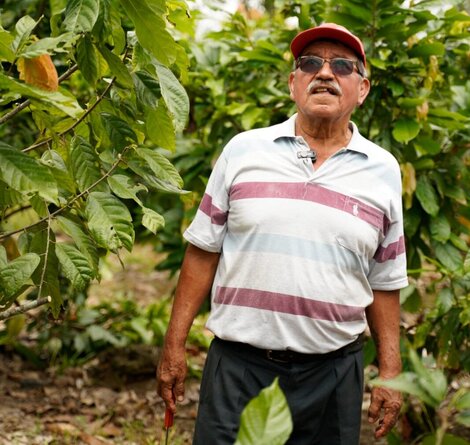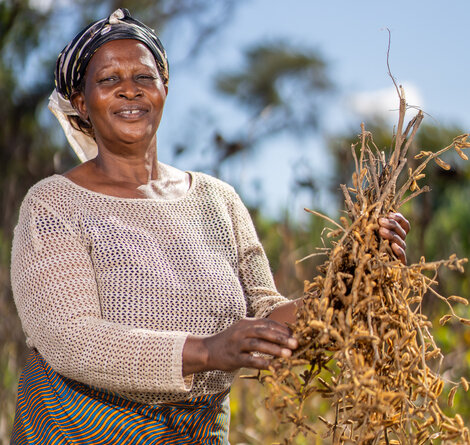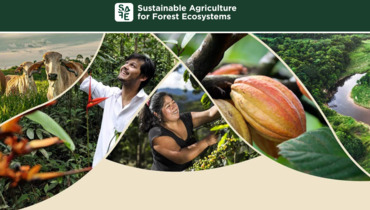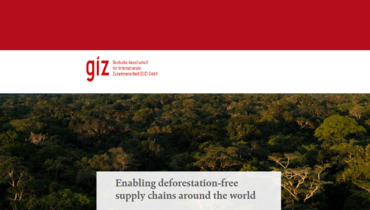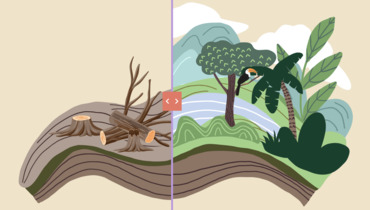Sustainable Agriculture for Forest Ecosystems (SAFE)
Contribute to the conservation of forests and other ecosystems and to the sustainable management of agri-food systems
The project at glance
Project goals
The “Sustainable Agriculture for Forest Ecosystems“ (SAFE) Project supports a just transition towards deforestation-free and legal value chains and aims to provide technical assistance, strengthen capacity, scale up traceability systems and support reliable and stable partnerships, including through exchange and learning amongst a wide range of actors.
Project implementation
Forests cover nearly one-third of Earth's land area and serve as a haven for most terrestrial life. Beyond their beauty and biodiversity, they are vital to human survival—purifying water, cleaning air, and acting as Earth's lungs. Crucially, forests combat climate change by capturing carbon dioxide, reducing the greenhouse gases that drive climate destruction. However, our forests are in crisis. In 2024 alone, 6.7 million hectares of primary forest were lost globally, as reported by Global Forest Watch. This year, nearly half of it was due to wildfires. In the preceding years agricultural expansion was the main cause, responsible for up to 90% of global deforestation.
Recognizing its role as a major consumer of agricultural commodities linked to deforestation, the European Union (EU) has taken decisive action to take responsibility in its role of deforestation. The EU Regulation on Deforestation-Free Products (EUDR) aims to reduce deforestation and forest degradation caused by EU consumption. The EUDR imposes due diligence obligations on companies who are placing the commodities palm oil, soy, beef and leather, cocoa, coffee, natural rubber and wood on the EU market or exporting from it. The companies need to prove that these products are deforestation-free, did not contribute to forest degradation and were produced in compliance with the relevant laws of the producing countries. To this end, it demands the traceability of products back to their place of origin. Article 30 provides for cooperation with partner countries for implementation, which is unique in an EU regulation.
The Sustainable Agriculture for Forest Ecosystems (SAFE) project, implemented by Deutsche Gesellschaft für Internationale Zusammenarbeit (GIZ) as part of the Fund for the Promotion of Innovation in Agriculture (i4Ag), is at the forefront of this effort. Co-funded by the EU, the German Federal Ministry of Economic Cooperation and Development (BMZ), and the Netherlands Ministry of Foreign Affairs (BZ), SAFE supports actors in producing countries to meet EUDR requirements while championing sustainable agriculture.
SAFE works across ten countries—Brazil, Burundi, Cameroon, the Democratic Republic of the Congo, Ecuador, Indonesia, Peru, Uganda, Vietnam, and Zambia—promoting deforestation-free, sustainable, and legal value chains. Through technical assistance, capacity building, promotion of traceability systems, and partnerships, SAFE supports producers transition toward sustainable agri-food systems.
Beyond these countries, SAFE fosters regional and global collaboration. Regionally, it facilitates dialogues among value chain stakeholders to navigate EUDR requirements. Globally, SAFE advances EUDR goals by strengthening coordination, funding innovative initiatives, and sharing knowledge on traceability, forest monitoring, green financing, and social inclusion. By highlighting and scaling successful practices, SAFE drives transformative change in forest preservation.
SAFE is not just about protecting forests - it’s about safeguarding ecosystems and supporting communities.
SAFE additionally holds the secretariat function of the new Team Europe Initiative on deforestation-free Value Chains.
What has been achieved so far?
Beyond activities and achievements in country, SAFE is working on Digital Public Infrastructure, Green Financing and Gender Equity globally, as well as fostering regional dialogues.
One example are the regional dialogues engaging partners beyond country implementation, as the EUDR affects everybody globally.
SAFE fosters collaboration through multi-stakeholder dialogues, effectively bridging gaps between regions to address shared challenges. These dialogues are designed to facilitate the exchange of lessons learned, experiences, knowledge products, and toolkits among key public and private stakeholders across relevant value chains. By combining online and in-person activities, participants document and share successful practices—both sector-specific and cross-sectoral—while showcasing innovative proof-of-concept solutions for EUDR compliance.
Milestones achieved:
Launched two operational regional dialogues since 2024, one in Latin America, one in Southeast Asia
Organized 18 dialogue events in Latin America, engaging over 800 participants
Hosted 13 events in Malaysia and Indonesia, involved more than 300 stakeholders in Southeast Asia
Preparation started for a technical regional dialogue for coffee producing countries in Africa in 2025
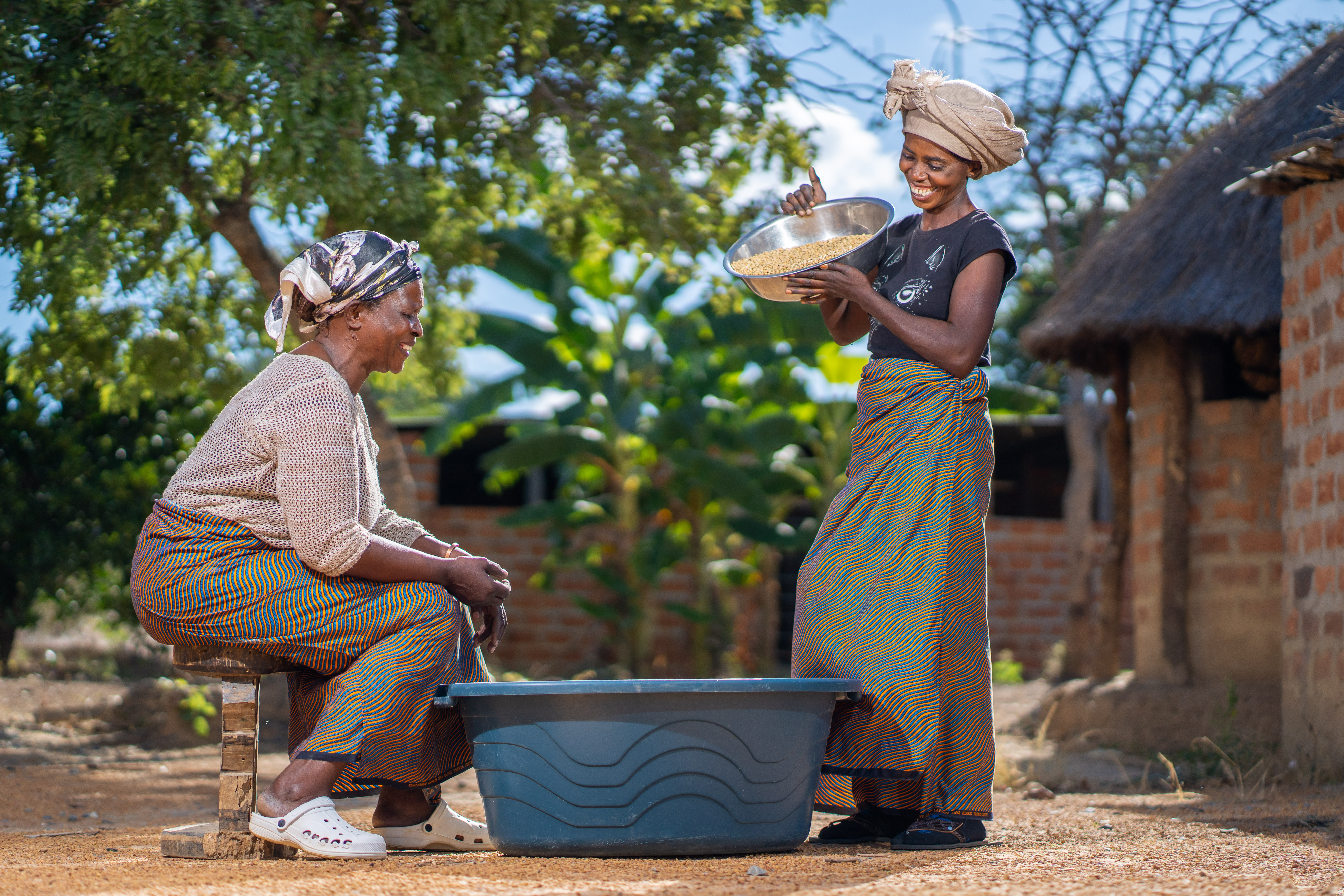
Outlook
Country Implementation is at various stages and will report in the future on aims:
- Commodities, that are produced in line with the EUDR
- Smallholder farmers, that confirm improved socio-economic conditions
- Existing forest in intervention areas, that are preserved
- Policy tools for promoting sustainable supply chains
- Regional and global good practices exchanged via the Team Europe Initiative (TEI)

